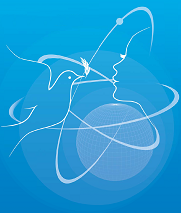Speaker
Brunelle Battistella
(World Institute for Nuclear Security)
Description
The challenges inherent in managing nuclear and radiological materials are complex and growing; ensuring that such materials remain secure requires competent management supported by ongoing training. The nuclear industry is increasingly becoming aware of the need for nuclear security: numerous dedicated training centres have been established worldwide and the IAEA holds approximately 60 international nuclear security training events annually. International training programmes have been conducted in various fields over decades but assessing their value and having the assurance that these training have had a sustainable impact remain difficult. In the field of nuclear security training, no assessment is being made of the degree to which the investment made is making a difference in building sustainable capacity and capability. This paper aims to discuss a methodology to assess the return on investment of nuclear security training. WINS has established a new professional society called the WINS Academy Alumni, for those individuals who have achieved certification through the WINS Academy. This platform proposes a structure, based on established competency frameworks, through which to measure the return on investment and performance improvement of nuclear security training. The objectives of the WINS Academy society are to stay engaged with certified Alumni, track their continued professional development progress, provide them with additional opportunities, and encourage their continued security competence through recertification. We envision that these certified practitioners will in turn promote certification and continual professional development among their peers to help build a network of security-trained professionals that will lead to meaningful and sustainable changes to security culture worldwide. In the long run (5-10 years), we envision that this group will be at the forefront of new professional requirements for nuclear security competence, with certification becoming the norm, and leading to employment benefits including increased salaries and managerial responsibilities.
| Country or International Organization | World Institute for Nuclear Security |
|---|
Author
Brunelle Battistella
(World Institute for Nuclear Security)
Co-authors
Mr
Daniel Johnson
(World Institute for Nuclear Security)
Dr
Roger Howsley
(World Institute for Nuclear Security)

